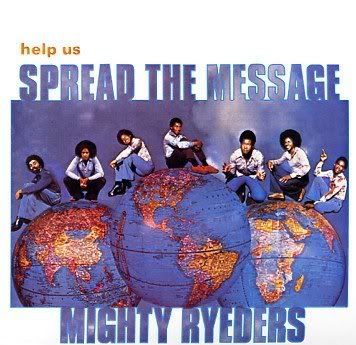
This is Wolf's portion of the show as part of the traveling American Folk Blues entourage, the first festival type presentation of the whole blues spectrum to invade Europe. This 1964 tour is the one that brought the real thing to locales where he had previously been only a name on a phonograph record, and the romantic notions projected into the sound that record gave off. With somewhat subdued but nonetheless solid support from right hand man Hubert Sumlin on lead guitar, Sunnyland Slim on piano, Willie Dixon on upright bass, and Clifton James on drums, Wolf runs through a 45-minute set loaded with classics and presented with a positively genial charm. The lack of Wolf's regular rhythm section (although Dixon played bass on many of the records from this period) lends a different flavor to these versions.
Many of the selections seem mistitled here ("Tell Me What I've Done" is "I Didn't Mean To Hurt Your Feelings," "Shake For Me" is "Shake It For Me," "May I Have A Talk With You" is "Love Me," etc.), but as this November 6th performance in Bremen, Germany unfolds, it becomes apparent that the odd titles come from Wolf's introductions. Everything is stretched to a nice, comfortable length here, as Wolf sets both mood and pace, with no tune clocking in at anything less than four minutes and "Goin' Down Slow" and "Forty-Four" reaching the six- and seven-minute mark. Even though the drums and Sumlin's guitar are perhaps muted in the mix more than they should be, the overall sound shows just how well these blues veterans worked together. Just how essential this performance is to a Wolf collection would be in debate, but once you're under the spell, you want to hear it all, and this is a fine addition for someone who's in it for the long haul.
Turn up the volume, and after a little while you won't hardly notice the lack of 21st century fidelity. Any semi-serious blues fan should listen to this wonderful recording of Howlin' Wolf in his prime...
Howlin Wolf - In Concert (1964)
(320 kbps, cover art included)
 This is a Folkways LP that came out in 1950, but it collects some of the first commercial recordings that Guthrie made - for RCA Victor in 1940. On the A side you will find four classic dust bowl ballads; on the flip side, songs about the migrants who were chased from the southwest by the storms of the 1930s. These include a piece that Guthrie based on John Steinbeck's Tom Joad character.
This is a Folkways LP that came out in 1950, but it collects some of the first commercial recordings that Guthrie made - for RCA Victor in 1940. On the A side you will find four classic dust bowl ballads; on the flip side, songs about the migrants who were chased from the southwest by the storms of the 1930s. These include a piece that Guthrie based on John Steinbeck's Tom Joad character.













